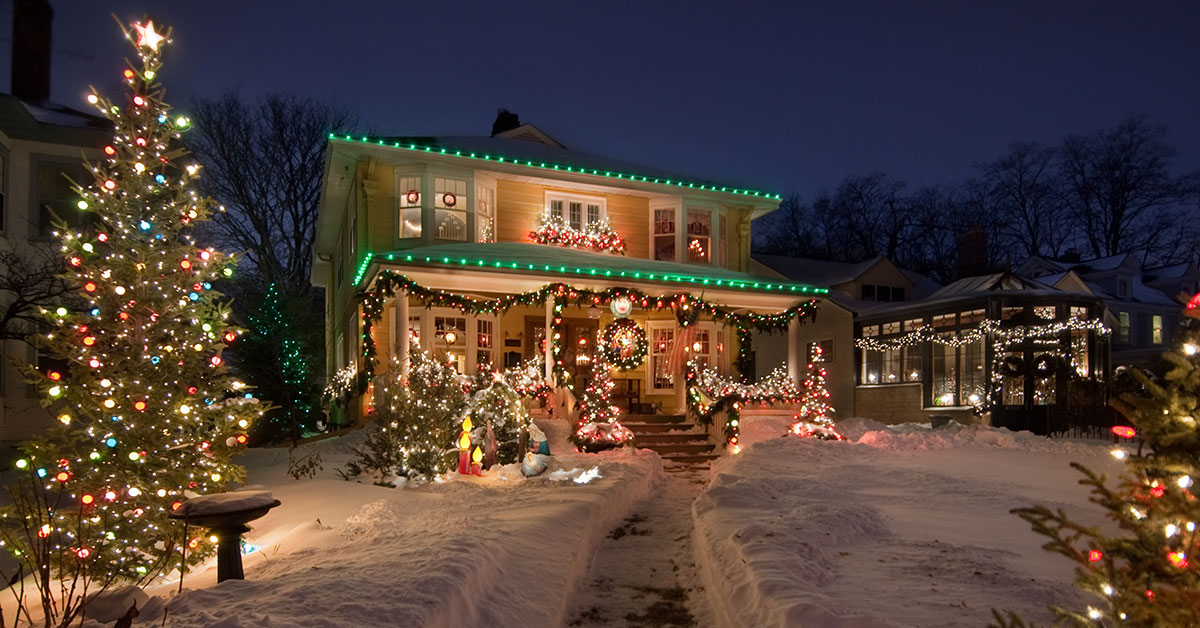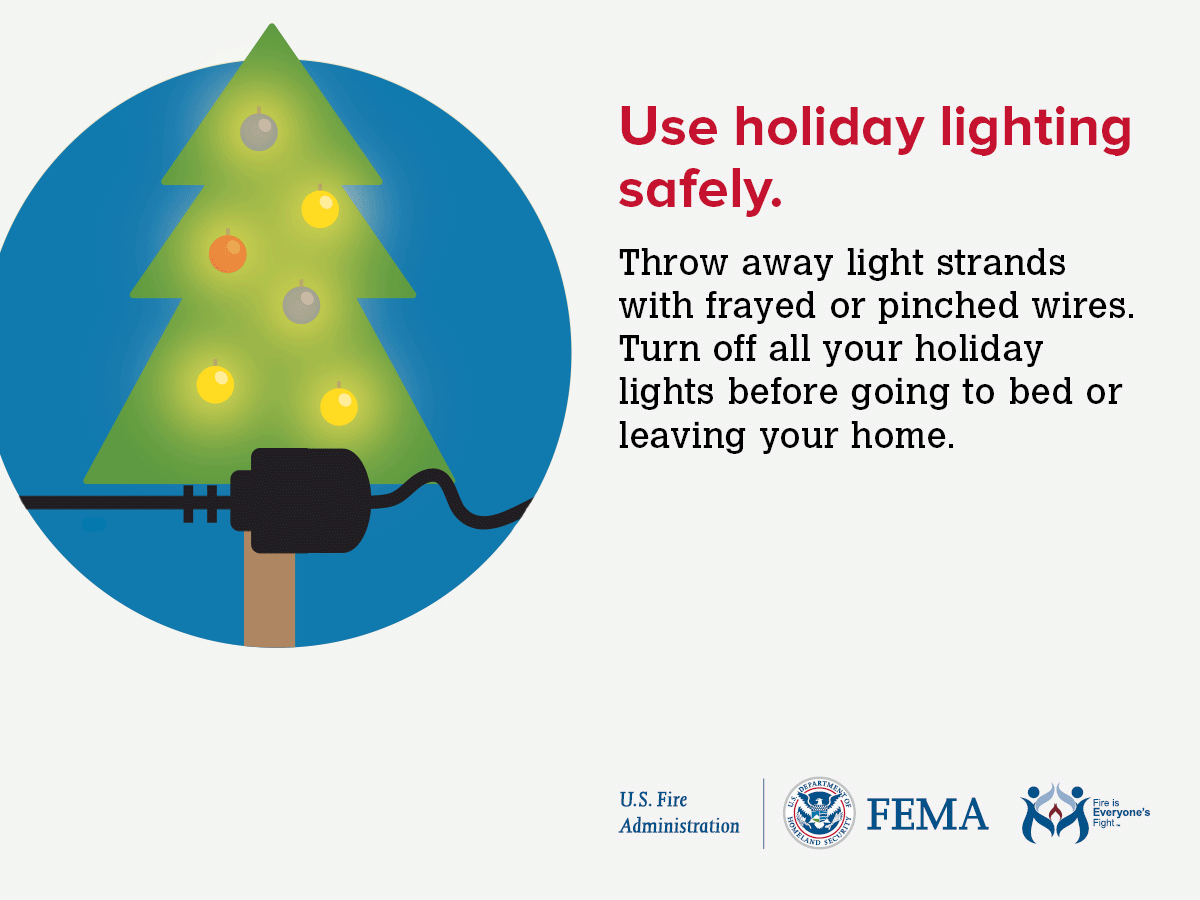Holiday Decor Safety

As you deck the halls this season, remember to be safe and smart. According to the U.S. Fire Administration, there are 250 Christmas tree fires and 14 related deaths each year. The combination of shorts in electrical lights and a tinder-dry tree can be deadly. That just goes to show how important it is to keep your tree well-watered. Not only will it stay fresh and green, but it might also keep your house from burning down.
Be sure to follow the do’s and don’ts of Christmas decorating below:
DO
make sure your tree is at least 3 feet away from heat sources like fireplaces, radiators, space heaters, candles or heat vents.
DO
make sure outdoor lights are plugged into a ground fault circuit interrupter outlet to reduce the risk of shorts and shocks. Water and debris can get into an outdoor socket and can cause catastrophic damage.
DO
be sure the lights you string up on the house belong out there. Not all lights are rated for outdoor use. Indoor lights often have thinner insulation, which can become cracked and damaged when exposed to the elements outdoors.
DON’T
use tacks, nails or screws to hang lights, which can pierce the cable and become electrified. Use insulated hooks instead.
DON’T
overload power strips. Investing in power strips with a built-in surge protector prevents overloaded circuits from causing an electrical fire.
DON’T
use lighted candles on a tree or near other greenery. Extinguish all candles before you go to sleep, leave the room, or leave the house.
Did you know?
The top four days for home candle fires are Christmas Eve, Christmas Day, New Year’s Eve and New Year’s Day.
For those of you who are going to put on a big show:
Are you going all-out this year with holiday light decorations? You’ll need more than just a few power strips to prevent overloading the circuit that’s already being used by other electronics. Metro Electric suggests having a professional electrician install a new circuit dedicated to your holiday decoration needs. This will lighten the load on your other plug-ins and decrease the chance of causing a power outage and/or dangerous sparks.

